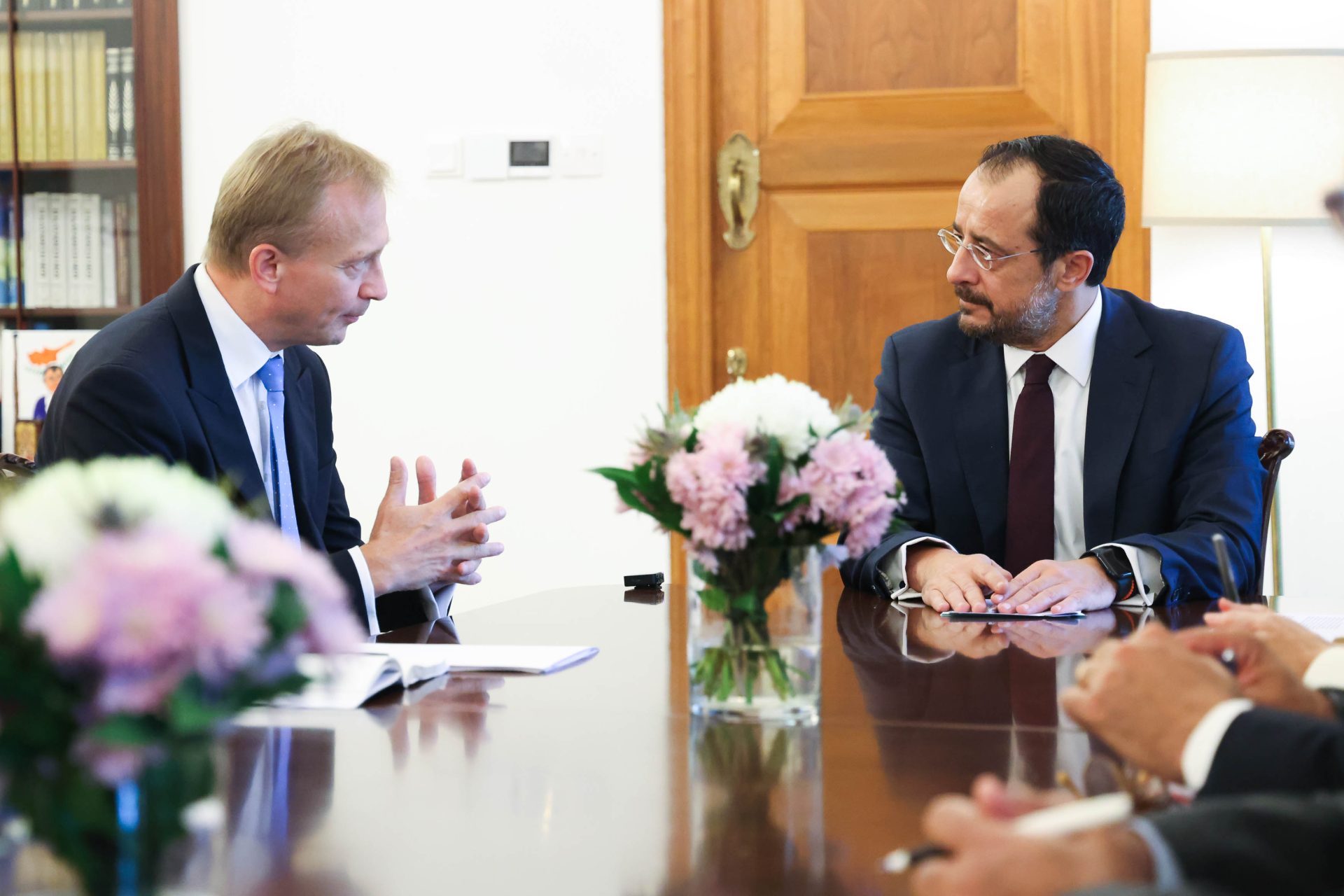Cyprus’ holding of the Council of the European Union’s presidency in the first half of next year will be “of crucial importance” for efforts to achieve unanimity among the bloc’s 27 member states regarding issues related to its next budget, European budget commissioner Piotr Serafin said on Thursday.
Speaking after a meeting with President Nikos Christodoulides, he pointed out that the island is the first member state he has visited after the European Commission submitted its budget proposal on Wednesday.
“Cyprus will be a very popular destination for EU institutions, heads of state, and ministers of EU member states during its presidency of the Council of the EU,” he added.
Christodoulides, meanwhile, said Serafin’s portfolio is “one of the most important”, and also highlighted the “importance” of his visit to Cyprus the day after the submission of the new budget.
“Cyprus will do everything to ensure progress on the issue when it holds the presidency of the Council of the EU, as well as on other issues of great importance, such as migration,” he said.
The EU’s next budget will cover the years between 2028 and 2034, with the commission having released a package of seven “sectoral proposals” on Wednesday.
The areas covered include the single market and customs programme, justice, and the European atomic energy community (Euratom)’s research and training programme, among other matters.
On the matter of the single market, the commission said it plans to “break down cross-border and cross-country barriers and foster cooperation between national administrations”, substantiating that with €6.2 billion worth of funding – double the amount made available in the current budget, which covers the period from 2021 to 2027.
Euratom, meanwhile, will receive €9.8bn, with the commission saying that this will “improve and support nuclear safety, security and safeguards, radiation protection, management of radioactive waste, non-power applications of nuclear science, such as in healthcare, and maintain the critical skills the nuclear sector needs to advance”.
Meanwhile, the EU will also dedicate almost €1bn to improving nuclear safety in Europe and in third countries, with this funding being allocated alongside plans to merge the existing instrument for nuclear safety cooperation and the decommissioning programme into one single programme.
In total, the budget is set to amount to almost €2 trillion in current prices, which the EU has estimated at around 1.26 per cent of the bloc’s gross national income on average over the budget period.
The budget will now be discussed by member states at the European Council, with unanimity required for it to pass, before the European parliament will be asked to give its consent.






Click here to change your cookie preferences